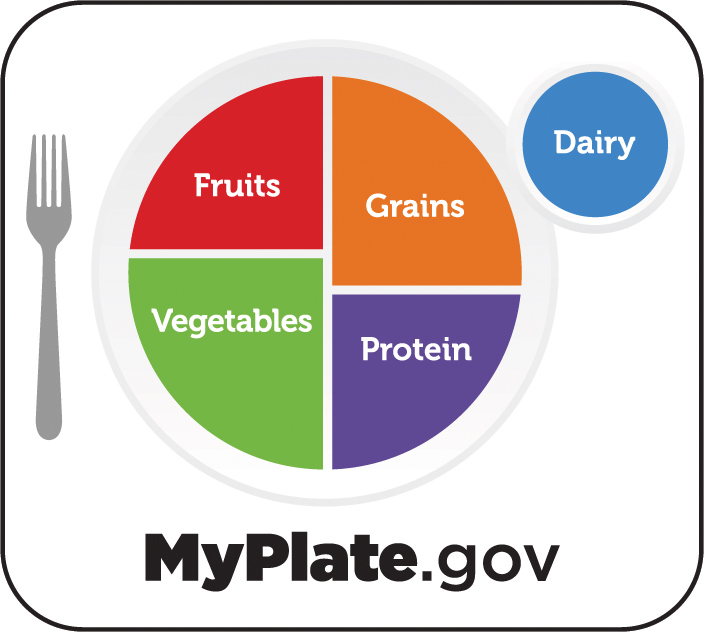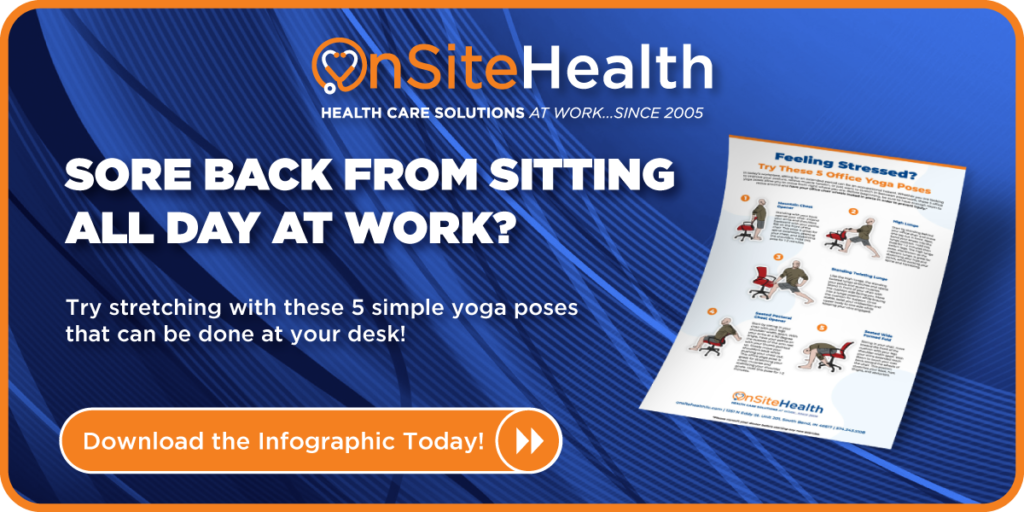Everything you put in your body has a direct impact on your health. While it may be easy to get caught up in the latest diet fad or counting your calories, good nutrition is really about having a well-rounded diet. While every individual’s body is different, our onsite nurses act as health coaches to help employees understand the importance of nutrition and what each person needs for a well-balanced diet. Let’s take a look at the 6 tips to improve your nutrition from the onsite coaches at OnSite Health.
Want to know what OnSite Health can do for you?
>>Click Here for our ROI Fact Sheet<<
The Importance of Good Nutrition
Having good nutrition means that your body is getting all of the vitamins and minerals that it needs to work its best. Having good nutrition goes beyond the number on the scale, but can help with a variety of health concerns such as:
- Reducing the risk for some diseases including heart disease, some cancers, osteoporosis, stroke and diabetes.
- Reducing high blood pressure
- Lowering cholesterol
- Improving your immune system and ability to fight off illness.
- Increasing energy level
Tips for Eating Well
- Pay Attention to the Five Food Groups
A well-balanced diet starts with eating a variety of fruits, vegetables, grains, meat and protein and dairy. The U.S. Department of Agriculture and U.S. Department of Health and Human Services recommend the following daily amounts:
- Vegetables: 2 cups a day
- Dark Green Vegetables: 1.5 cups per week
- Red and Orange Vegetables: 5.5 cups per week
- Beans, Peas, and Lentils: 1.5 cups per week
- Starchy Vegetables: 5 cups per week
- Other Vegetables: 4 cups per week
- Fruits: 2 cups a day
- Grains: 6 ounces a day
- Dairy: 3 cups a day
- Protein Foods: 5.5 ounces a day
- Meats, Poultry, Eggs: 26 ounces per week
- Seafood: 8 ounces per week
- Nuts, Seeds, Soy Products: 5 ounces per week

- Reduce Your Sodium Intake
According to the CDC, about 90% of Americans consume too much sodium, which can lead to an increased risk of heart disease and stroke. In order to reduce your sodium intake, you can substitute products for low-sodium, avoid processed and prepackaged foods and use different spices and herbs in your cooking.

- Increase Your Fiber
Fiber is an important aspect of nutrition because it helps regulate your diet and will make you feel fuller longer. Fiber can be found in fruits, vegetables, whole grains and beans.
- Add Healthy Fats into Your Diet
It is a common misconception that all fats are bad, but that is not the case. Foods such as olive oil, nuts, salmon, tuna, seeds and avocados are examples of foods that contain monounsaturated and polyunsaturated fats, which are good for you.
- Cut back on Sugary Drinks
Soda, fruit juices and other heavily sugary drinks can adversely affect your health. Since it is a liquid, your body does not register it the same way it does food, so there is no indication in whether your body feels full or not. This leads to increased calorie intake which can lead to weight gain and other health issues such as heart disease, diabetes and more.

- Drink More Water
As simple as it may be, drinking water provides your body with numerous health benefits. Water intake recommendations can vary from person to person depending on their body weight, exercise, and health conditions. We recommend people drink between ½ to 2/3 of their body weight in ounces. So if you weigh 120 pounds, you should be drinking between 60 and 80 ounces of water a day. Your water intake should also be increased during the summer months and when exercising.
Improve Your Nutrition With an OnSite Health Nurse Coach
At OnSite Health, we understand the importance of eating well and living healthy, active lifestyles. Our team of dedicated on-site nurses and staff work with numerous organizations to improve employee health. Whether it’s through health screenings or our health coaching program, we work with each employee to develop a plan that is right for them. If you’re interested in integrating a nurse health coach into your organization, contact our team today.





